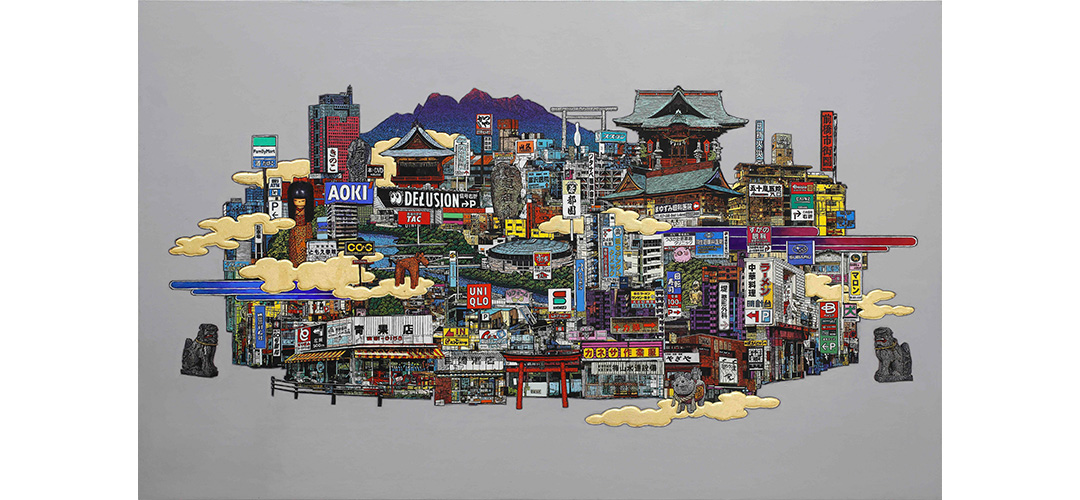Taisuke FUJIWARA
View of Maebashi City
Japanese paper, acrylic, pigments, white gold leaf on panel
72.7 × 116.7 cm
2019
Taisuke Fujiwara creates art based on real landscapes by visiting cities and settlements across the country. During these on-site visits, he explores distinctive features of the local environment, such as roadside shops, advertisements, and signs, gaining insight into the lives of the residents. In recent years, Fujiwara’s focus has shifted from an overarching aerial perspective to works that concentrate on cityscapes, filling his canvases with meticulously arranged urban elements.
Fujiwara gathers materials and information from the places he visits, integrates them digitally, and then prints them on washi paper. He enhances the composition and adds color with delicate brushwork. Additionally, he incorporates traditional Japanese techniques, such as using gold leaf to depict raised clouds and mists, infusing his work with a distinctly Japanese aesthetic and elegance. Looking ahead, Fujiwara plans to travel the world, capturing fragments of memory and the current scenery, preserving the "here and now" of each place he visits through his brush.
Last year, the exhibition featured an impressionistic landscape of Takasaki City in Gunma Prefecture. This year, the focus remains on Gunma Prefecture, specifically the artist Fujiwara's hometown, Maebashi City. Perhaps due to his deep emotional connection to his hometown, Fujiwara has created numerous works centered on Maebashi City. This particular piece is one of his earlier works. In contrast to his more recent style, which tends to fill the canvas with detailed elements, his earlier works emphasize spatial composition, leaving ample, comfortable empty spaces in the painting. Fujiwara concentrates the most familiar and cherished memories of his hometown in the center of the canvas, relying solely on his memory, without any photographic references. This central depiction reflects his profound longing and affection for the place he once called home.

